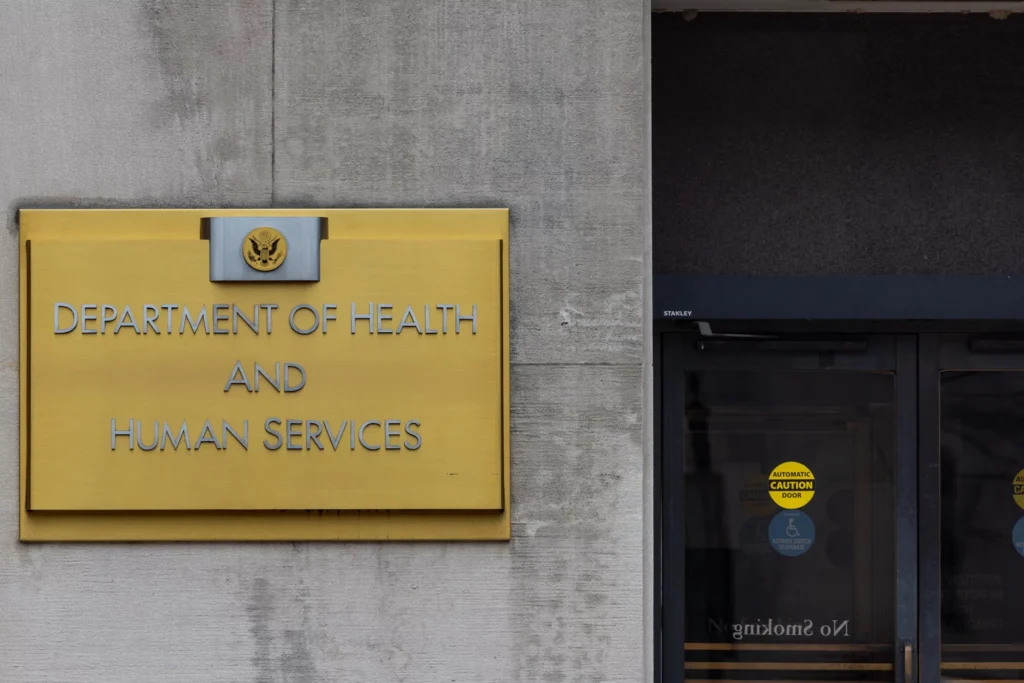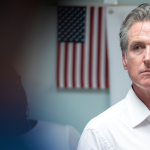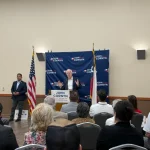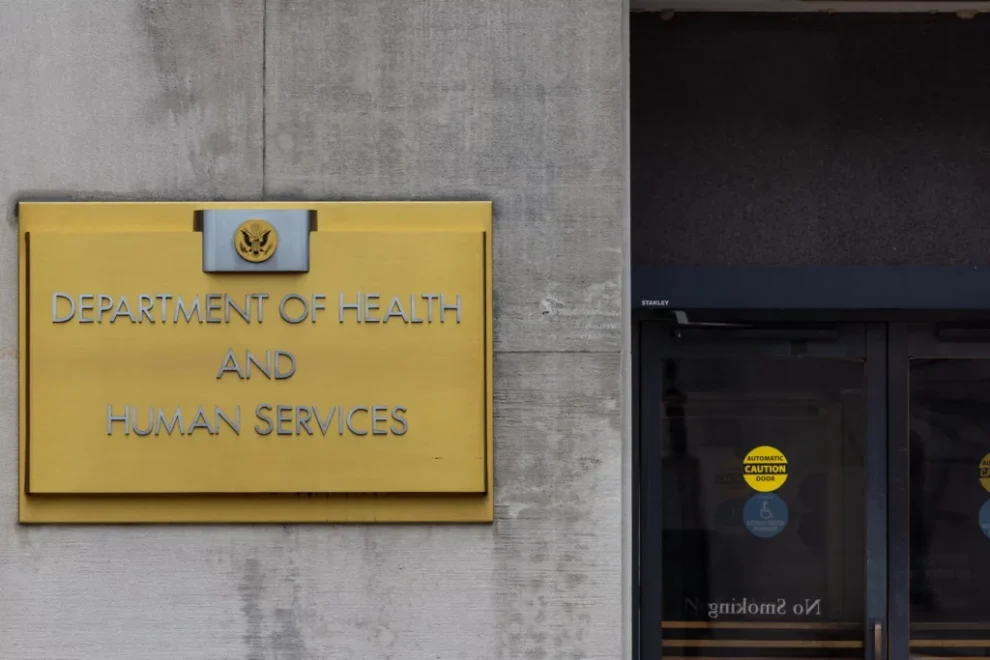EXCLUSIVE — The Biden administration’s Department of Health and Human Services maintained a secret chat with members of over two dozen liberal advocacy organizations connected to influential donors to coordinate policy implementation and messaging concerning the Inflation Reduction Act, the Washington Examiner has learned.
In February 2024, Sarah Bourland, then a senior policy adviser at HHS, sent an email to representatives from an array of left-of-center organizations titled “Stakeholder Workgroup: IRA & prescription drugs,” according to documents obtained via Freedom of Information Act Request by the Public Health Reform Alliance. The email contains links to HHS talking points and material published by liberal groups praising the Biden administration’s efforts.
Coordination between then-President Joe Biden’s HHS and these organizations extends far beyond a single email, as Bourland alluded to a private “chat” room that health officials and activists communicated through to shape the implementation of the IRA. Government officials have communicated through secure messaging platforms like Telegram and Signal. A source close to the Public Health Reform Alliance told the Washington Examiner that the organization has submitted a follow-up FOIA request for these chat logs.
“The Biden administration used this stakeholder group to project the illusion of public engagement while outsourcing its policy messaging to political operatives,” PHRA Director Martin Hoyt told the Washington Examiner. “It is a profound breach of ethical governance and a betrayal of the American people’s right to transparent, impartial policymaking.”
The Biden administration invited several groups that work directly to help Democrats advance their electoral and legislative goals to join the policy implementation team.
Rhett Buttle, founder of Public Private Strategies, who has publicly claimed to be “directly responsible” for organizing private sector support for Biden’s 2020 and Hillary Clinton’s 2016 presidential campaigns, was among the individuals involved in the working group, for example.
Four staffers working for the National Committee to Preserve Social Security and Medicare, including its CEO, were invited to the private chat. The NCPSM’s political action committee often spends six-figure sums to bankroll the campaigns of congressional Democrats, campaign finance records show. NCPSM’s CEO also serves as the chairman of its PAC.

HHS also invited representatives from Waxman Strategies, a lobbying firm headed by former Rep. Henry Waxman (D-CA), to advise on IRA implementation. Waxman provides hundreds of thousands of dollars worth of lobbying services to Democratic-aligned groups such as the Sierra Club, National Resources Defense Council, the League of Conservation Voters, and the Windward Fund, which is managed by Arabella Advisors.
While it’s not clear precisely what advice these organizations gave the Biden administration, it is clear who funds them.
Several organizations funded by arms of the Arabella Advisors dark money network were included on the email chain and in the secret chat room. Arabella Advisors, a for-profit consultancy that manages a group of nonprofit grant makers, is the premier provider of anonymously-sourced funds to activist groups on the Left, funneling hundreds of millions of untraceable dollars each year into efforts to elect Democrats and win policy victories for the left.
The Center for American Progress, Public Citizen, and the Center on Budget and Policy Priorities, among others, are counted among the Arabella-funded groups the Biden administration leaned on to inform its policy decisions. The Sixteen Thirty Fund, which operates under Arabella Advisors, has faced criticism from conservative voices over its acceptance of foreign funds. Namely, one of its largest donors is Swiss billionaire Hansjorg Wyss. Right-wing critics have argued that Arabella Advisors acts as a vector through which foreign donors can influence policy in America.
Protect Our Care, another organization invited to the secretive chat, is a project of the Sixteen Thirty Fund.
“The Wyss Foundation and Berger Action Fund support organizations and policies that lower the cost of healthcare, promote economic opportunity, and conserve and expand access to our public lands,” Marneé Banks, a spokeswoman for the Wyss-backed nonprofit groups, previously told the Washington Examiner. “Both organizations comply with laws and rules governing their activities and prohibit grants from being used to support or oppose political candidates or parties.”
The Center on Budget and Policy Priorities bills itself as nonpartisan. However, it has consistently supported the liberal policy agenda since its founding in 1981 by opposing tax cuts and supporting major Democratic initiatives such as President Obama’s Affordable Care Act. In addition to taking money from the Arabella network, the Center on Budget and Policy Priorities is also funded by major labor unions, the Ford Foundation, and Democracy Alliance, a tight-knit group of influential left-of-center donors committed to donating at $200,000 per year to left-of-center organizations.
Philanthropies funded by the Soros family, which contributes tens of millions of dollars to helping elect Democrats every election cycle, were also counted among HHS’s secret working group. Among the Soros-funded groups invited by the HHS to help shape IRA implementation were UnidosUS, which supports taxpayer-funded healthcare for illegal immigrants, Patients for Affordable Drugs, and Social Security Works.
IN FINAL DAYS, BIDEN AWARDED $50 MILLION TO SELF-DEALING CHARITY LEADER
Other liberal organizations the email identifies as participating in the working group include The Center for American Progress, the NAACP, and the United Auto Workers union.
While the Trump administration’s efforts to purge its ranks for ideological reasons have received considerable press coverage, some of the individuals involved in the secretive working group are still working for the federal government.
Meghan O’Toole, a former senior adviser in Biden’s Centers for Medicare and Medicaid Services, remains a senior adviser within CMS. Matthew Hubbard, meanwhile, was a non-governmental member of the working group who took on a career role in HHS around the time President Donald Trump took office.
























